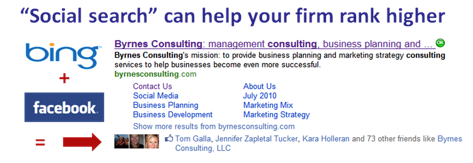Why aren't we completely overloaded?
As the world continues to produce more and more information, more individuals might feel like they are drowning from a fire hose of content with little time to breathe. However, studies show that individuals are not feeling as overwhelmed as they were a decade ago, even though there is much more available information today.
At the recent FutureM conference in Boston, Mark Beeching, chief creative officer at Digitas agreed there are now more sources of information, but they are now managed on the terms of the recipient. In other words, people can now screen and filter content, subscribing to feeds, opting in to follow individuals and companies online, and much more. This allows individuals to block out the other noise, making the rising sea of information much more manageable.
Social networks help filter
In the June 2011 issue of Financial Advisor Magazine, I wrote an article called, "Social Media Networking Becomes Even More Important." In that piece, I noted how Google search results will be impacted by one's own connections and what those people are sharing online. At the time, Google had a relationship with Twitter's information, but has discontinued that arrangement with the hopes that Google+ will take off, especially now that it has just been opened to the public, with invites no longer needed. [For more information, read "Is Google+ Really A Plus?" in the September issue of Financial Advisor.]
Is Bing better?
For many reasons, Bing has evolved to be a major competitor of Google's. Stefan Weitz, director of search at Bing (Microsoft), explains their past search results were more like a machine in which they were very logically driven. "Now we are making search more human," he said. One way they are doing this is by partnering with Facebook to get the public data from its over 750 million users. "The amount of data is staggering. We need social search to parse through all this data," Weitz said.
Giving insight into how Bing ranks search results, Weitz said it is common sense that 'likes' (and retweets) have an impact. He explained that humans want to collaborate, which started back in the days when people lived in caves. But when humans evolved, they spread out over the world, and collaboration became harder. Now, thanks to technology, a recommendation can be seen anywhere in the planet in an instant, allowing for the most collaboration the human race has ever seen.
Why does this all matter?
The day of the phonebook is dead. People search online for everything and many are doing it from their handheld devices. If you want to be found online in these searches, your online connections will help improve your odds.
Weitz might have said it best by stating, "It goes back to the word-of-mouth model, but now it is just a much different vehicle." He explained how the old "purchase funnel" started with humans talking to friends, with 90% of people relying on the "friend effect" to make decisions. Now prospective clients start searches online but still defer 80% of decisions until getting input from friends. With social search, prospects can see if their friends like something when doing their online research, which might cut down on the needed friend effect conversations, potentially increasing and speeding up lead conversions.
Here is an example of how the social search results appear on Bing.com.

Note: To implement Bing's social search technology using Facebook, go to Bing.com and look for the Facebook icon on the top of the page.
What should advisors do to take advantage of these trends?
For many reasons, beyond just social search, advisors can benefit from having strong online connections through social networks. Here is a short list of "to do" items to get ahead of the trends and be more successful in the future:
1. Create a social media policy to meet HR guidelines, FINRA/SEC regulations, etc.
2. Use an archiving service.
3. Create social media pages that match your brand.
4. Build a strategy [Watch a quick 7-minute video to get started].
5. Use social networks effectively, making quality connections, staying informed, sharing fresh content and strengthening relationships.
And remember, it is more than social media, it is "Social Business."








